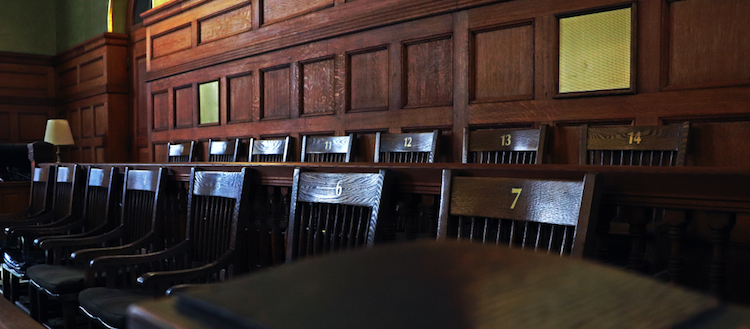8th Circuit rules against grand juror who wanted to talk about Michael Brown case

Image from Shutterstock.com.
A federal appeals court has ruled against a grand juror who wanted to correct the record after a prosecutor discussed evidence in the 2014 fatal shooting of Michael Brown, an 18-year-old Black man, by a white police officer in Ferguson, Missouri.
The 8th U.S. Circuit Court of Appeals at St. Louis ruled Aug. 14 that the grand juror’s right to free speech is not unconstitutionally infringed by Missouri’s grand jury secrecy laws.
“Grand Juror Doe” had claimed that the public was misled when St. Louis County Prosecuting Attorney Robert McCulloch discussed the grand jury’s decision not to indict police officer Darren Wilson in Brown’s death.
Doe’s suit alleged that McCulloch mischaracterized the views of grand jurors toward the evidence, the witnesses’ credibility and the law. She also claimed in her original complaint that the government’s presentation of the case was “muddled and untimely,” compared to other grand jury investigations.
The appeals court upheld a judge’s decision to dismiss Doe’s case. The court said the Missouri secrecy law is narrowly tailored to serve a compelling interest.
“We think it thus beyond dispute that secrecy is an integral component to a functioning grand jury system,” the appeals court said in an opinion by U.S. Circuit Judge Raymond Gruender, an appointee of President George W. Bush.
If Doe was to speak out, she would undermine the functioning of the grand jury, the court said.
“Witnesses in future cases may be less candid,” the court said. “Jurors might hesitate to discuss matters candidly or to vote their conscience out of fear of future publicity.”
Hat tip to How Appealing, which linked to stories by the St. Louis Post-Dispatch and Courthouse News Service.
Write a letter to the editor, share a story tip or update, or report an error.


